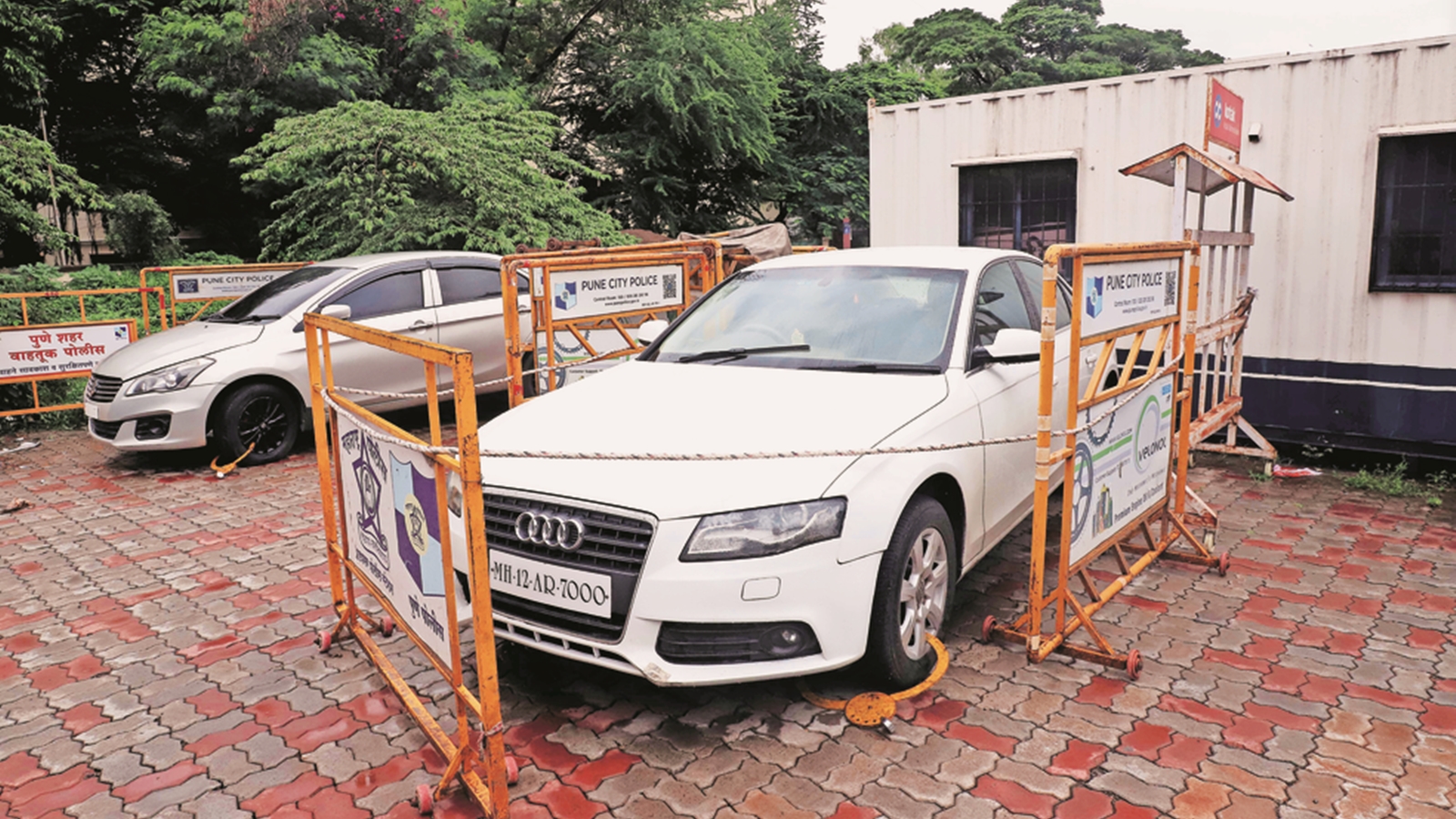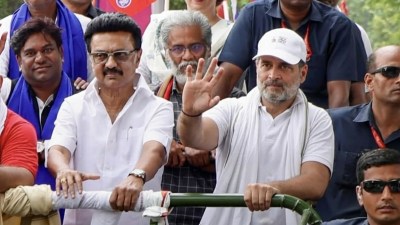The Centre last Thursday constituted a single-member committee under the Department of Personnel and Training (DoPT) to examine all documents submitted by probationary IAS officer Puja Khedkar to secure her candidature in the civil services.
Khedkar secured a rank of 821 in the 2022 UPSC Civil Services Examination, and was allotted the Indian Administrative Service (IAS) under the Other Backward Classes (OBC) and Physically Handicapped (PH) quotas. Questions have been raised about her appointment under these categories.
Khedkar also faces multiple allegations of misconduct, from seeking special privileges she is not entitled to as a probationer and “occupying” the ante chamber of the District Collector’s office, to using an unauthorised red-blue beacon on her private car, a luxury Audi sedan which she claims to have received as a “gift”.
In light of this controversy, the Maharashtra government on July 8 decided to transfer Khedkar from Pune to Washim. Khedkar’s actions as a civil servant are governed primarily by two rules: the All India Services (Conduct) Rules, 1968, and the Indian Administrative Service (Probation) Rules, 1954. What do these rules say?
 The Audi sedan that she used, now in the custody of police in Pune. (Express Photo)
The Audi sedan that she used, now in the custody of police in Pune. (Express Photo)
Rules on ‘integrity’ of services
All IAS, Indian Police Service (IPS) and Indian Forest Service officers are governed by the AIS (Conduct) Rules from the time they are allotted their service, and begin training. AIS (Conduct) Rule 3(1) states: “Every member of the Service shall at all times maintain absolute integrity and devotion to duty and shall do nothing which is unbecoming of a member of the Service.”
Rule 4(1) is more specific about what is “unbecoming”. It states that officers must not use their “position or influence” to “secure employment for any member of his family with any private undertaking or NGO”.
In 2014, the government added a few sub-rules. This included that officers should maintain “high ethical standards, integrity and honesty; political neutrality; accountability and transparency; responsiveness to the public, particularly to the weaker sections; courtesy and good behaviour with the public”.
Story continues below this ad
Also added were specific directions as to how officers must make decisions. They must do so “solely in public interest… declare any private interests relating to his public duties… not place himself under any financial or other obligations to any individual or organisation which may influence him… not misuse his position as civil servant and not take decisions in order to derive financial or material benefits for himself, his family or his friends…”.
According to Rule 11(1), officers may accept gifts from “near relatives” or “personal friends” with whom they have “no official dealings”, on occasions such as “weddings, anniversaries, funerals and religious functions”. However, they must report (to the government) any gift whose value exceeds Rs 25,000. This threshold was last updated in 2015.
Rules for probationers
There is an additional set of rules that govern the conduct of officers during their probation period, which lasts for at least two years after selection to the services. This includes the period of the officers’ training at the Lal Bahadur Shastri National Academy of Administration (LBSNAA) in Mussoorie. At the end of two years, officers sit for an examination, after clearing which they are confirmed in their respective services.
During the probation period, officers draw a fixed salary and travel allowance. But they are not entitled to, as a right, a number of benefits that confirmed IAS officers receive. These include, among other things, an official car with a VIP number plate, official accommodation, an official chamber with adequate staff, a constable, etc.
Story continues below this ad
Rule 12 gives the circumstances in which probationers can be discharged. These include, among other things, the central government finding the probationer “ineligible for recruitment” or “unsuitable to be a member of” the service; the probationar “wilfully” neglecting her probationary studies or duties; and the probationer lacking in “qualities of mind and character” needed for the service.
The Centre holds a summary enquiry before passing an order under these rules — like the one that has been initiated against Khedkar by the DoPT. The committee will submit its report within two weeks.
Furnishing false information
Since the batch of 1995, 27% seats in the services have been reserved for the OBC category. The Physically Handicapped (PH) reservation was introduced with the batch of 2006 — 3% seats in every category (General, OBC, SC, and ST) are reserved for the differently abled.
Despite her low rank, Khedkar was allotted IAS, India’s premier civil service, due to these quotas. However, if her OBC and PH certificates are proven to have been falsified, Khedkar stands to be discharged from service. Probationers are “discharged”, while confirmed officers are “dismissed”.
Story continues below this ad
A DoPT circular from 1993 states: “Wherever it is found that a Government servant…had furnished false information or produced a false certificate in order to secure appointment, he should not be retained in service…”. This is applicable even if the person in question is not a probationer, and has already been confirmed.
However, such a dismissal would likely be challenged in court, before the Central Administrative Tribunal (CAT), and the National OBC Commission — challenges which may drag on for years. In the interim, the officer may still continue to be in service.
Khedkar was previously embroiled in a legal battle at the CAT regarding her PH status. As per a CAT order dated February 23, 2023, UPSC had asked Khedkar to undergo a medical examination at the AIIMS, New Delhi in April 2022 but she sought a postponement citing a Covid-19 infection.
She did not arrive at the rescheduled examination as well, although she is learnt to have later submitted an MRI report from a private facility to support her claims. “Despite making multiple attempts by the duty officer in AIIMS to contact the applicant, no response was received from her. Therefore the percentage of visual disability could not be assessed,” the CAT order read.
Story continues below this ad
Critics have pointed to Khedkar’s ostensibly well-to-do background to question her OBC (non-creamy layer) status. The OBC category is subdivided into the creamy and non-creamy layers, with only the latter benefiting from reservations in government services and institutions. The idea is to specifically benefit those OBC members who come from economically, socially, and educationally less privileged backgrounds. This determination is made based on the parents’ income, and occupational background.
For those whose parents work in the private sector, the current threshold to qualify for the non-creamy layer status is an income of under Rs 8 lakh annually. For those with parents who work in the public sector, income is not taken into account. Rather, as per DoPT rules, what qualifies people to be in the creamy layer is either parent becoming a Group-A official before the age of 40, or both being Group-B officials with similar ranks.
Puja Khedkar’s father, Dilip, is a retired Maharashtra Pollution Control Board officer, who is now in politics.



 The Audi sedan that she used, now in the custody of police in Pune. (Express Photo)
The Audi sedan that she used, now in the custody of police in Pune. (Express Photo)




































